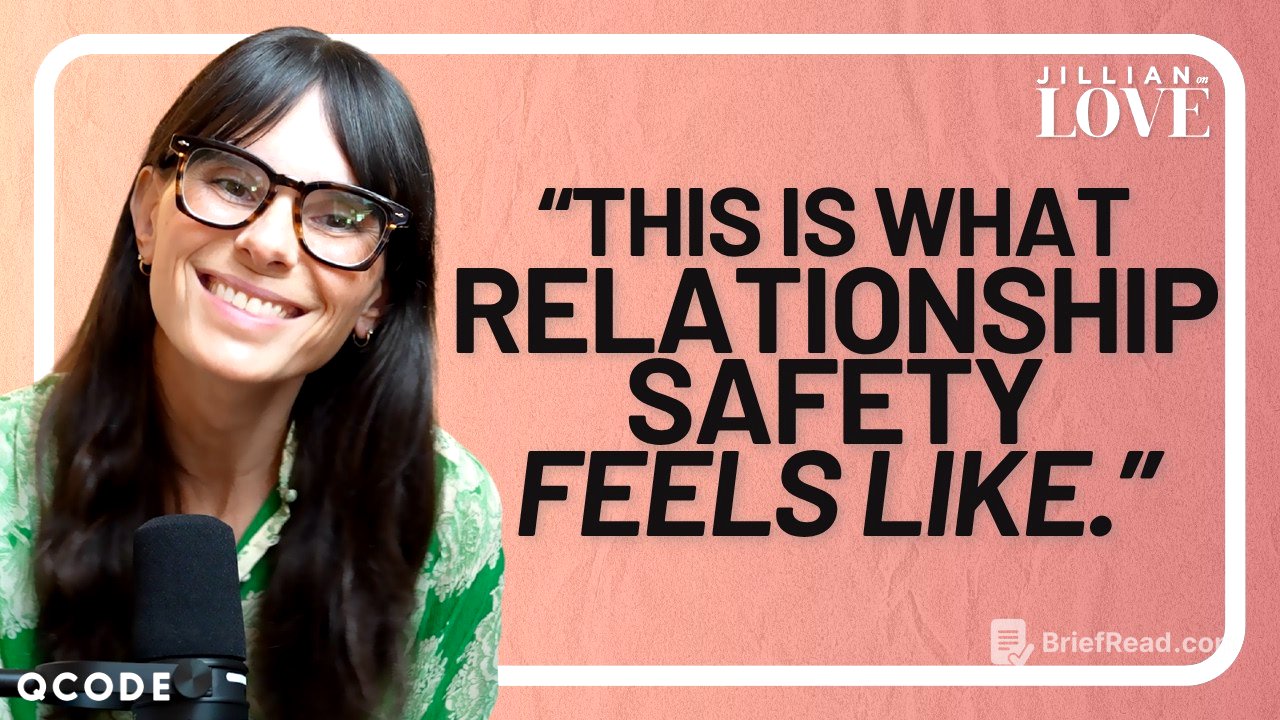TLDR;
This video talks about how important emotional safety is in any relationship, especially romantic ones. It highlights that trust and respect are the foundation, and without them, the relationship is likely to fail. The video also discusses how feeling emotionally safe can improve your overall well-being, while a lack of safety can lead to stress and health problems. Finally, it gives practical tips on how to build and maintain emotional safety in your relationships, both from your partner and within yourself.
- Emotional safety is built on trust and respect.
- Feeling safe lowers cortisol and helps in relaxation.
- Consistency, accountability, and how you handle conflict are key to emotional safety.
- You also need to work on your own internal sense of safety.
The Foundation of Emotional Safety [0:05]
The video starts by emphasizing how crucial emotional safety is in a relationship, describing it as a "safe home" to return to. It points out that many people are in relationships where they don't feel emotionally safe, which is a big problem. Emotional safety is defined simply as trust and respect, which form the base of any strong relationship. Rushing into commitment without building this foundation is a recipe for disaster.
Why Emotional Safety Matters [9:14]
Emotional safety is super important because it lowers your cortisol levels and activates your parasympathetic nervous system, which helps you relax and digest food properly. Your partner greatly influences your sleep, thoughts, and overall well-being. Being with someone who makes you feel unsafe can negatively impact your health, leading to chronic stress and a weakened immune system. Supportive relationships, on the other hand, can actually lower inflammation and add years to your life.
Co-regulation and Its Role [13:22]
The video introduces the concept of co-regulation, where being around others helps regulate your nervous system. This happens in parent-child relationships, romantic relationships, and even between therapists and patients. If someone is anxious, a grounded partner can act as an anchor, helping them to calm down. The video also suggests having difficult conversations while walking to channel excess energy and reduce tension.
Signs of Emotional Safety [17:52]
One of the main signs of emotional safety is consistency. Knowing what to expect from your partner is crucial. Accountability is also key; you should be able to own your mistakes instead of deflecting blame. How you respond to conflict is another important factor. Shutting down or giving the silent treatment is emotionally unsafe behavior. Accepting your partner for who they are, without trying to change them, is also essential for creating a safe environment.
Taking Responsibility for Your Own Safety [23:04]
The video stresses that no one is completely responsible for your emotional safety; you also need to work on feeling safe within yourself. This involves trusting yourself, keeping promises to yourself, and expressing your needs. It also means understanding and communicating your boundaries. Building internal safety is also physiological, involving practices like deep breathing and movement to regulate your nervous system.
How to Build Safety Within Yourself [29:05]
To create safety within yourself, learn to trust yourself by keeping promises and telling yourself the truth. Have the courage to express your needs and boundaries, and don't shy away from difficult conversations. Building safety is also about taking care of your body through movement and breathing exercises. It's important to be someone who keeps their word and doesn't run from conflict. Choose partners who truly see and cherish your vulnerability.
Final Thoughts on Emotional Safety [31:41]
The video concludes by reiterating that emotional safety is the foundation of any relationship. When choosing a partner, prioritize feeling safe with them. If you're in a relationship where trust and respect are fading, try to work it out by listening without defensiveness and being more consistent and tolerant. Remember to evaluate yourself and strive to be a safer partner. You deserve to be in a relationship where you feel emotionally safe, as it's crucial for your well-being.









